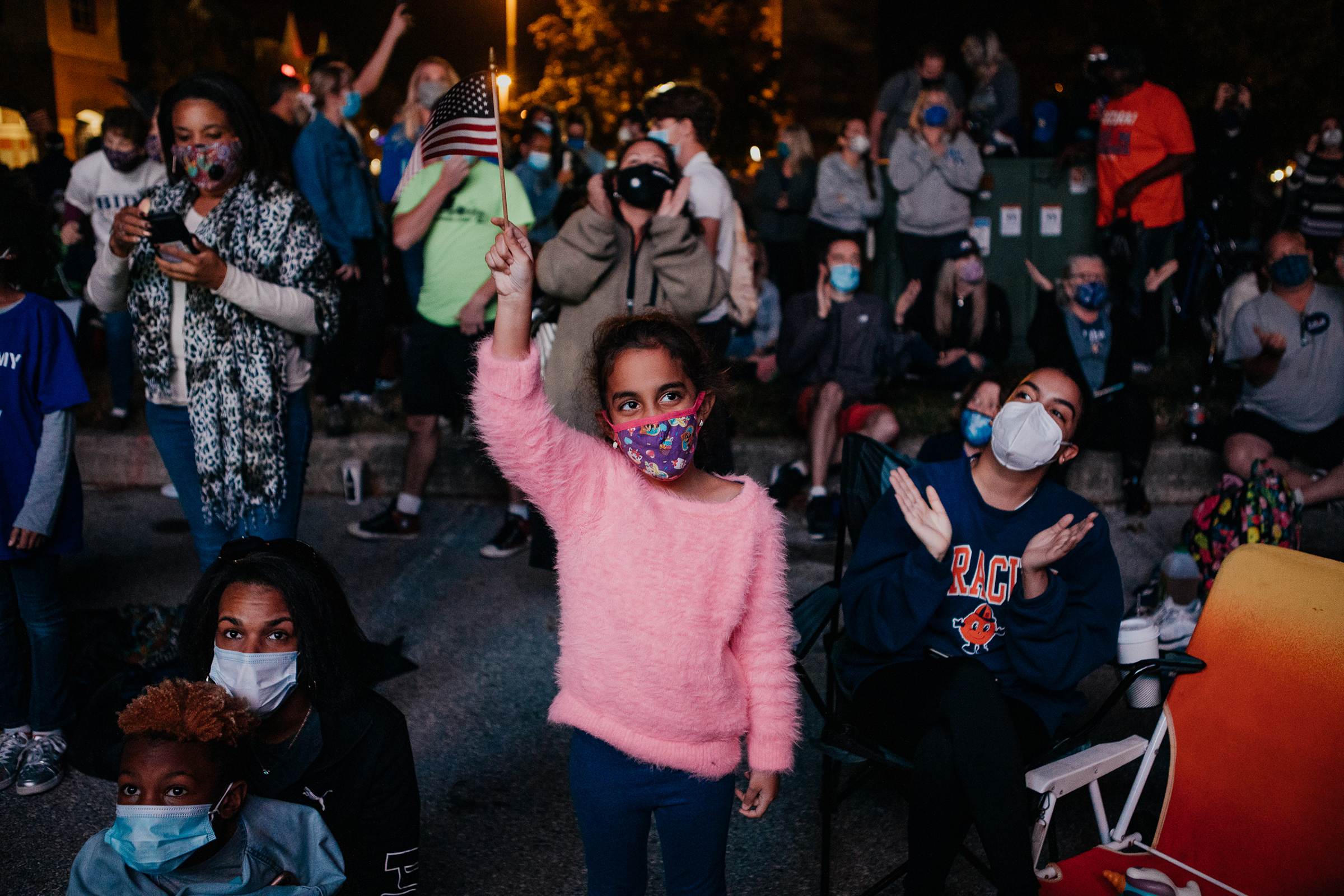
As we drove slowly through the crowded D.C. streets just blocks from the White House, we popped out of our sunroofs to exclaim in relieved jubilation. Lyrics like Lizzo’s “feelin’ good as hell” formed our soundtrack. After several days, after the pins and needles on which America sat had grown more and more painful, the Associated Press had proclaimed Joe Biden and Kamala Harris the winners. Our exhaustion could have relief, even if only briefly.
Many of us in the activism, organizing, academic and grassroots communities have warned of the danger of Donald Trump’s narcissistic, white-nationalist tantrums since 2016. More days of those hissy fits, enabled by slow counts and slower projections, felt like the twisting of a knife we were finally on the cusp of pulling out.
In our fight against the oppression intensified by the Trump Administration, we have resisted Muslim bans, family separations, police violence, natural disasters, man-made disasters, undermined protections and compromised social safety nets. In 2020 alone, nearly 240,000 of our loved ones have died while Trump mocked what may have saved them. The material cost of the last four years will not be fully calculated for some time; the residual effects of this harm will persist in the lived experiences of the most oppressed for years to come. The psychological toll on everyday people will linger.
Since the election was called, some establishment figures have aimed to put the proverbial Band-Aid on the very real gaping wound of this time. The voices of those who won this election in the trenches of Black and brown communities have been drowned too often by white voices who insist the reconciliation requires pardoning the harm done. But those of us who handed the Democrats a win, all while resisting the worst of white supremacy with few resources and vacillating support, have one resounding thing to say: not so fast. America must not simultaneously thank Black and marginalized communities for an arduous victory and shun our demands for an end to our continued systemic oppression. Gratitude must reap material reward.
The Trump presidency shined a glaring light on the worst of America–beliefs, systems and institutions that predated the Occupant by generations. Trump was always the symptom. He was never the virus. This is why, despite the decisive 75 million vote win by the Biden-Harris ticket, and the victories of diverse, progressive candidates and ballot measures across the country, we cannot simply ignore the fact that 8 million more people voted for Donald Trump in 2020 than in 2016, after witnessing four years of his deadly sins.
I celebrated both the seemingly impossible political victory and the indent that the power of good people made in the armor of hate.
The rot is deep. This is not unpatriotic to say. The only way I know how to be a patriot on stolen soil in a country built by my enslaved ancestors is this: to tell the truth of the values that made way for such atrocities and the white-supremacist patriarchal traditions that followed so that I can stand earnestly beside those who are not overcome by the scale of the problem, but empowered to fix it.
Disciplined hope is my guiding star. A concept I first heard when I was a teacher, it requires an honest assessment of the problem, an unrelenting belief that it can be changed and an undistracted pursuit of what’s better. It’s grabbed me from the perpetual sinking feeling so many of us know well and gotten me up and ready to fight for another day.
It is that same discipline that drove me to join my D.C. neighbors in those streets this weekend, to sing, shout and honk. For just a few minutes, I celebrated both the seemingly impossible political victory and the indent that the power of good people made in the armor of hate.
It turns out we haven’t been on a death march for the last four years: white supremacy has. And as we–activists and organizers, student leaders and phone bankers, preachers and teachers, creatives and culture shifters, neighbors and friends–have steadily forced it toward its final gasps, it has lashed out at us in a desperate attempt to survive.
That is why we are tired–not just because some days felt like defeat, but because this victory was hard fought. The many more victories we need after a weekend of relief will be too. Freedom work will require more dedication, intention, honesty and integrity, not less. Trump will not take systemic oppression with him when he packs up in January, and millions of our neighbors don’t want to see it go.
But despite our physical and spiritual exhaustion, we struck a blow, and not a small one. So, after four years of holding our breath, we exhaled. For a moment, we doused ourselves in the joy that will fuel us for the fight ahead.
We are ready.
More Must-Reads From TIME
- The 100 Most Influential People of 2024
- The Revolution of Yulia Navalnaya
- 6 Compliments That Land Every Time
- What's the Deal With the Bitcoin Halving?
- If You're Dating Right Now , You're Brave: Column
- The AI That Could Heal a Divided Internet
- Fallout Is a Brilliant Model for the Future of Video Game Adaptations
- Want Weekly Recs on What to Watch, Read, and More? Sign Up for Worth Your Time
Contact us at letters@time.com